The National Indian Council on Aging


www.nicoa.org
2 0 2 2

The National Indian Council on Aging


www.nicoa.org
2 0 2 2
The National Indian Council on Aging (NICOA) is proud to share this 2022 Annual Report. Since its founding, the organization has worked tirelessly to achieve its mission “to advocate for improved comprehensive health, social services and economic well-being for American Indian and Alaska Native elders.”
Our success would not be possible without the help and support of our many donors, dedicated board members, the constituents we serve, and most of all NICOA’s tremendously talented and dedicated staff. The pandemic created enormous challenges, but also enabled the organization to continue its journey by utilizing new creative avenues made possible by technology
When NICOA was founded in 1976 there were a little over 300 federally recognized Indian tribes in the United States. Today, there are 574. As our population grows, so does the health, economic security, and social service needs of our Native elders.


Forty years ago, 70 percent of the Native population resided on reservations and tribal communities. Now they live in urban and off-reservation communities, according to the 2020 Census. The contents of this annual report details how the National Indian Council on Aging is responding to these challenges. A major focus of our efforts is to enable professionals in the aging network to meet the changing needs of tribal and Alaska Native communities through our information, resources and trainings
We realize that one organization cannot accomplish this alone; it takes cooperative and lasting relationships to make a difference in Indian Country. We have entered into a variety of partnerships in our efforts to raise awareness about the Native elder population. This has included communicating with policymakers at the congressional level, the federal government, state governments and other NGOs.
The National Indian Council on Aging’s mission statement is what we do. The more important question is why. Native elders are the repositories of tribal histories, languages, customs and cultural norms. They are what makes a tribe a tribe Without these components, our tribal identity is lost, thereby ensuring our extinction
In essence, our efforts are to ensure the continued existence of tribes two millenniums into the future With the supportive services we advocate for we can help our elders live longer and healthier, allowing them to spread this precious traditional knowledge to the next generation and beyond Again, I want to thank all who have helped us weather the pandemic, and most of all for the generosity of our donors among whom we acknowledge the MacKenzie Scott Foundation and the Poarch Band of Creek Indians. Walk in beauty.
Billie Tohee NICOA Board ChairpersonThe National Indian Council on Aging, Inc (NICOA) is a 501(c)(3) nonprofit organization with a mission to advocate for improved comprehensive health, social services and economic well-being for American Indian and Alaska Native elders
NICOA is governed by a 13-member board of directors composed of American Indian and Alaska Native elders representing each of the 12 Bureau of Indian Affairs regions, as well as a representative of the National Association of Title VI Grantees The regions are: Alaska, Eastern, Great Plains, Midwest, Navajo, Northwest, Eastern Oklahoma, Pacific, Rocky Mountain, Southern Plains, Southwest and Western
For over 40 years, NICOA has served as the nation’s foremost advocate for American Indian and Alaska Native elders. Our organization provides testimony before federal, state and tribal policymakers on behalf of American Indian and Alaska Native elders.


NICOA is excited to welcome two new board members to our team: Betti Delrow of the Navajo Nation and Wilma Toledo of the Jemez Pueblo
NICOA is governed by a 13-member board of directors composed of American Indian and Alaska Native elders representing each of the 12 Bureau of Indian Affairs regions, as well as a representative of the National Association of Title VI Grantees. The regions are: Alaska, Eastern, Great Plains, Midwest, Navajo, Northwest, Eastern Oklahoma, Pacific, Rocky Mountain, Southern Plains, Southwest and Western
NICOA is seeking board members to fill our vacant positions! If you are interested or you know of an outstanding elder representative or professional who can represent your area, please provide them with our information. Check our website for more details: www.nicoa.org.
NICOA was founded in 1976 by members of the National Tribal Chairmen’s Association who called for a national organization focused on aging American Indian and Alaska Native elders Members included the late Wendell Chino (Mescalero Apache), the late Joe DeLaCruz (Quinault) and other tribal leaders. These leaders saw the need for a national organization whose sole purpose would be to advocate for improved comprehensive health, social services and economic well-being of American Indian and Alaska Native elders
The first National Indian Conference on Aging was sponsored by the National Tribal Chairman’s Association in Phoenix, Arizona, on June 15-17, 1976, and led by President Wendell Chino. Close to 1,500 American Indians and Alaska Natives representing 171 tribes came to speak of their needs and present recommendations for action to improve the quality of their communities.



NICOA’s core program is the Senior Community Service Employment Program (SCSEP), an on-the-job training and employment program designed to help low-income residents 55 and older update their skills and build experience to security and well-being. Administered by the U.S. Department of Labor under Title V of the 1965 Older Americans Act, SCSEP is the only federally funded community service and training program in the U S serving this population
In 1989, NICOA was selected to serve American Indian and Alaska Native elders, and the program is now administered in seven states NICOA is one of 17 national grantees providing these services, and one of two providing services to American Indian elders in the U.S. For more information, visit www.nicoa.org.
You can find NICOA’s SCSEP in 7 states:

Arizona
Minnesota
New Mexico
North Dakota
Oklahoma
South Dakota
Wisconsin
NICOA's Senior Community Service Employment Program (SCSEP) works with elders to find employment in their communities to become self-sufficient 2nd Chances Thrift Center in Bismarck, North Dakota, is a great example of how the program works!

Carol Schumacher started out as a program participant and soon became the assistant store manager With her work experience, she was able to gain the skills that allowed her to apply for the position
Store Manager Brad Wahl is a big supporter of NICOA's SCSEP and the progress of the participants placed there. Employers like these make it possible for SCSEP participants to gain the necessary self-confidence, skills and job opportunities.
NICOA would like to take this time to thank all the employers we work with and let them know how much their contribution means to us and the participants we serve. If you are a nonprofit or governmental agency and would like to find out more, visit www nicoa org or call 505-292-2001
Employment Agencies/Partners:
Salvation Army
Dress for Success
Tribal governments
YMCA
Navajo Nation Chapter Houses
Tribal and other senior centers
Minnesota CareerForce
Oklahoma Works American Job Center
Wisconsin Department of Workforce Development
Central Oklahoma Workforce
Innovation Board
Types of Employment:
Stockers in food pantries or other nonprofit organizations
Custodial
Office clerical support
Entrepreneurs, such as Native American jewelry, arts & crafts
Food service

Older American Indians and Alaska Natives are a rapidly growing population group. According to the Administration on Aging, the number of Native people 65 and older has increased nearly 75 percent between 2010 and 2020.
Overall, Native populations experience some of the highest rates of chronic disease and disability in the U S Due to an increase in the Native elder population, as well as the high level of disability within the population, tribal communities are experiencing an increased need for long-term care for elders and tribal members with disabilities.
NICOA has created a comprehensive new website on elder care services in Indian Country the NICOA Compass, www.nicoacompass.org. The website contains a wealth of information on how to begin planning for long-term care, ways to pay for services, resources and advice for caregivers, an interactive map and searchable state directory for finding services, including Indian Health Service hospitals, tribal clinics, and urban health care facilities It is our hope that this website empowers tribal communities to develop long-term care for Native elders and persons with disabilities in their local communities
By taking a continuum of care approach, NICOA seeks to make the idea of long-term care something each tribal community can learn about, as well as find ways to make these services a reality for their elders As elders age they want to keep their independence. Long-term care options provide the tools they need to continue living their life as fully as possible.
Examples of long-term care include:
Chore Services
Home Delivered Meals
Senior Centers
Transportation
Caregivers
Legal Services
Guardianships
Home Health Services
Elder Protection Programs
Intergenerational Programs
Assisted Living
Long-Term Care Facilities
NICOA States Completed in 2022:

Connecticut
Florida
Idaho
Massachusetts
Michigan
Minnesota
North Dakota
South Dakota
Wisconsin
In Progress:
California
“We hope that people will find the information contained in the site to be useful and transferrable to actual programs and the programming of services,” said Larry Curley, executive director of NICOA. “Our hope is that there will be increased collaboration, coordination and dialogue between tribal and non-tribal programs.”
The goal of long-term care is to provide a high quality of life and the option to age as the elder chooses, either in their home or in a facility Long-term care follows the continuum of care concept which acknowledges the broad expanse of a person’s existence All parts of the individual’s journey through life are interdependent and include their physical, mental, social, and spiritual well-being NICOA‘s role is to respond to the whole person and their needs and to ensure that all parts of their being are addressed Moreover, this concept embraces the American Indian approach to addressing the whole person whether well or disabled.
The mission of NICOA’s Compass is to provide comprehensive data and resources on elder services, as well as policies designed to assist tribal elders, providers and tribal leadership with information to improve the lives of tribal elders. The website provides tribal leaders and community members an easier way to learn about longterm care options and find resources based on their location You can use the website to find information on aging in place, policies and program examples, learn how to both plan for and pay for your care, find services near you, and more
“It’s important that there be a resource for tribal program administrators, tribal elders and tribal leaders; something they all can access to obtain information about services and programs in their areas as they advocate on behalf of their elders,” said Curley.
NICOA endeavors to provide tribal leaders and community members with the most accurate, up-to-date information and to share our knowledge and expertise in the field of aging. The website offers user-friendly navigation, a responsive design, and an abundance of aging information. To learn more and find services near you, visit www nicoacompass org

NICOA has released a toolkit dedicated to increasing awareness and knowledge of the needs of American Indian and Alaska Native persons living with disabilities. The toolkit “Understanding Disabilities in American Indian & Alaska Native Communities” contains information about disabilities, tribes and resources
Gathering national technical experts, NICOA updated and expanded this valuable resource, first developed by the National Council on Disability in 2003, with the latest data and more recent resources. Thanks to funding from the Administration for Community Living / Administration on Aging, this wonderful new toolkit is now available to download on our website.
Inside you will find suggestions for improving services, providing protections, and utilizing resources in local tribal communities for people with disabilities
Additional information provides overviews on federal disabilities laws, initiatives, agencies, and organizations that support work with Native individuals with disabilities and communities.

The information within the toolkit addresses an urgent need of Native people today and has been formatted for easy accessibility. This resource has the potential to have a high impact on its target population through the dissemination of critical information to parents, community members, tribes, and schools
This project is dedicated to building bridges between tribes and those in the aging network who want to help but are not sure how to begin. NICOA hopes this guide assists tribes and their allies as they work together to make good decisions about our shared future.
Find “Understanding Disabilities in American Indian & Alaska Native Communities” online in NICOA's Technical Assistance and Resource Center at www nicoa org



NICOA is excited to announce its 24th conference on aging in Indian Country will take place on September 25-29, 2023, at Harrah’s Cherokee Casino Resort in Cherokee, North Carolina This year’s theme is “A Trail of Determination: Our Culture, Our History and Our Future ”
Every two years the American Indian Elders Conference welcomes over 2,00 from all over the country. Confe represent Native elders, stakeh tribal representatives, governm and aging network providers

NICOA’s conference is the only national conference in the country focusing exclusively on the needs of American Indian and Alaska Native elders. It serves as a national forum for Native elders from across the country to come together to me and receive updated informatio on aging in Indian Country Our biennial conferences benefit ou 300,000 elders as well as the en population from all 574 tribes
The conference consists of educ presentations from tribal, state organizations as well as a divers
aging service partners with experience in providing services to Native elders, who provide information and updates on aging services, health care, civic engagement and economic development in Indian Country
Workshop sessions include caregiver support, elder abuse prevention health, nutrition, transportation, long-term services and supports, aining, financial assistance and akers from federal, state and and agencies will be present to m updates and listen to the aging rican Indian and Alaska Native
forward to having an exciting ence and hope you’ll join us! You purchase a 2023-2024 bership to get discounted erence pricing. Conference pricing ased on your membership type, ch is available for purchase online by mail You must apply for or enew your membership before egistering for the conference
Visit our website at www.nicoa.org o register for the conference, ply for membership, become an bitor, submit resolutions, hop proposals and more.
NICOA invited our members to participate in a survey to assess their current health, social and financial standing. The needs assessment was administered both online and in paper format to 736 American Indian and Alaska Native members.
The survey's questions were developed to improve NICOA’s understanding of our member’s physical, mental, spiritual, and cognitive health, as well as their economic well-being. Overall, NICOA's needs assessment drives Native elder policy recommendation and advocacy across Indian Country
47% 53%
of surveys were completed online. of surveys were mailed in.
Participant Locations
The majority of participants were female and 70 years old and over. The top 3 states that had the most participants were Oklahoma, Arizona and Minnesota.

Have you ever been diagnosed by a healthcare provider with the following? used telehealth services to receive health services from healthcare providers
31% of participants had socially distanced interactions with friends or relatives
63.9%

In the past 6 month, did you ever skip meals because there wasn't enough money for food?
How often do you discuss finances in your family?
Onlyaroundimportantevents
Once finalized, a complete copy of the Member Needs Assessment will be available online at www.nicoa.org
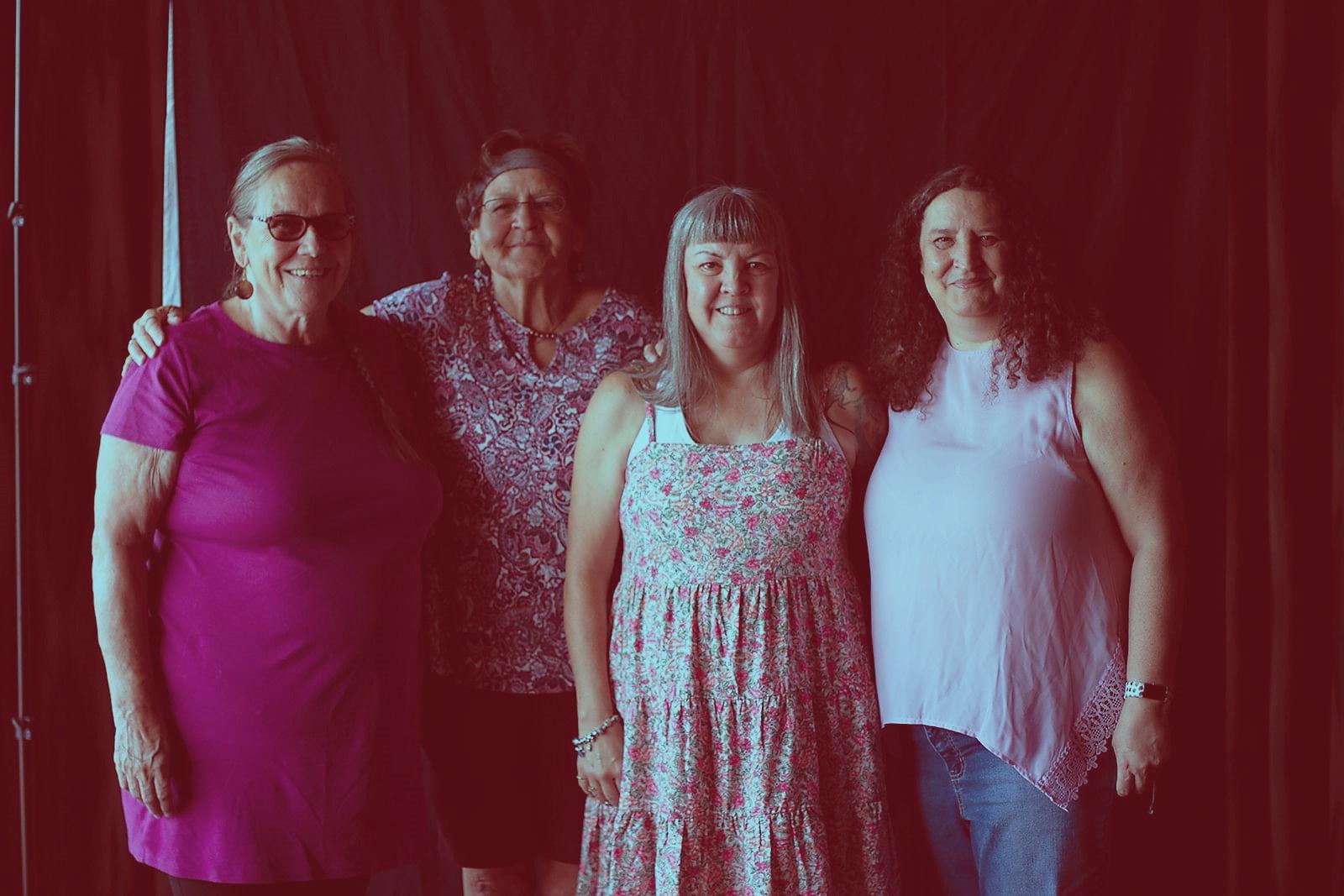
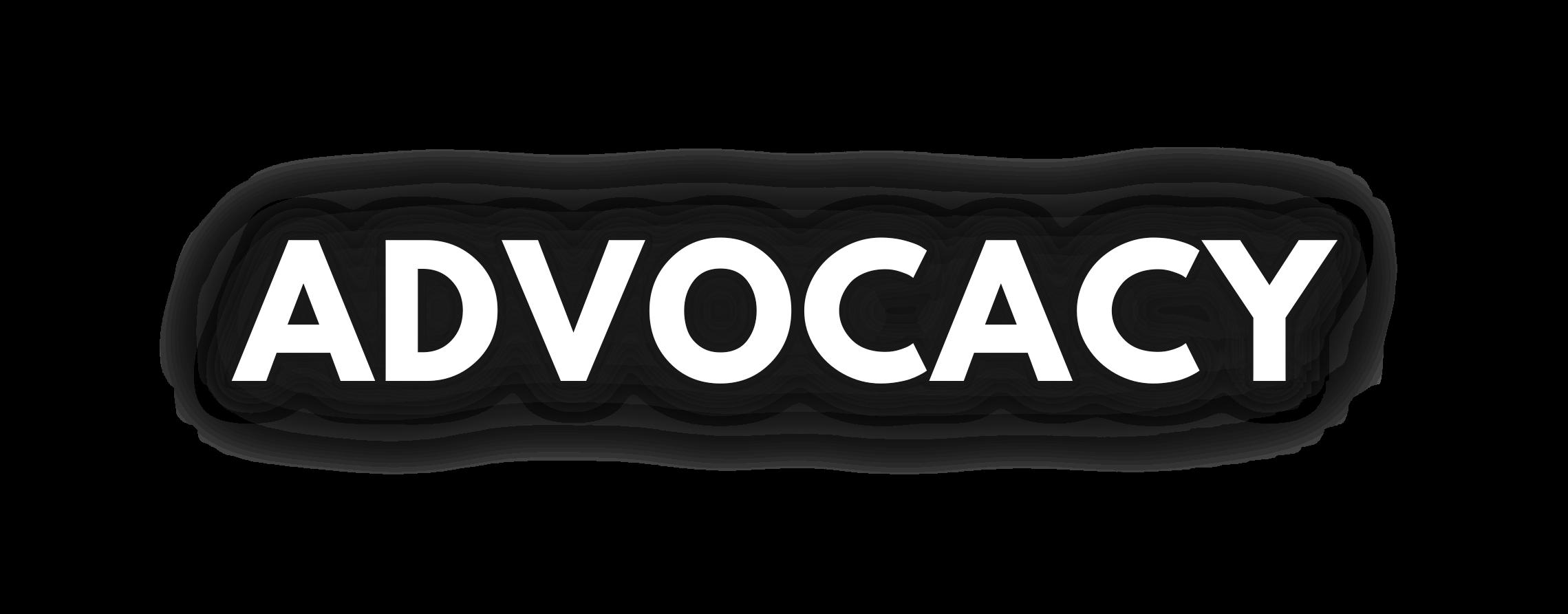
Sometimes the things we read are so fantastic we dismiss them right away. Other times they can actually cause us to stop and wonder if there could be a kernel of truth buried within.
Have you ever been misled by a Facebook post? A video on YouTube or TikTok? People have felt negatively about both the COVID-19 pandemic, and the vaccines developed to help stem the tide of infections It can be hard to know what to believe How can we sort out what is true and what is not? Let NICOA and our invited speakers guide you with our webinar "Misinformation in the Time of COVID-19 "
Watch our video for an overview on misinformation and listen to a discussion on how to make sense of this confusing online world we live in. Discover the different types of misinformation that exist, how it’s faced in Indian Country and the best strategies to counter it to protect yourself and others.

Speakers include NICOA Executive Director Larry Curley (Navajo Nation) and Project Coordinator Rebecca Owl Morgan (Eastern Band of Cherokee Indians); along with Ahmer Arif, assistant professor in the School of Information at the University of Texas at Austin; and Jason Young, senior research scientist and affiliate assistant professor at the Information School at the University of Washington Find the video and others like it at www nicoa org and www youtube com/@nationalindiancouncilonaging

@nationalindian
councilonaging
Visit NICOA's YouTube channel to find over 65 videos! Listen to the stories of Native elders, hear from participants of NICOA’s Senior Community Service Employment Program, watch staff interviews and footage from our last American Indian Elders Conference.
NICOA offers electronic and direct contact training modules for non-Native service providers to learn about working with tribes and Native elders. Our trainings focus on:
Understanding the history and traditions of American Indian and Alaska Native elders
Best practices for success in Indian Country
Finding creative ways to support and advocate alongside our elders
Learning more about Native people living with disabilities and the resources available to them
If you are interested in receiving one of our trainings, please contact us to discuss your training needs
“Caring for Our Wisdom-Keepers: Supporting Native Elders” lists the barriers to elder wellness and includes personal quotes from elders themselves. It discusses the importance of cultural competency and provides community and traditional solutions to advocate and support our elders. This training will deepen one’s understanding of the needs of our elders and help participants learn how to meet those needs and advocate by their side
With "Caring for Native Elders: Best Practices," participants will learn about the history of Native communities post-colonization and how it impacts health outcomes. Participants will gain the skills to identify, affirm, and effectively serve Native elders with a focus on building long-term relationships It offers the opportunity to review successful community models, role play and apply their learning through discussion
"Caring for Native Elders: History & Cultural Traditions" will teach participants to identify Native cultural traditions, as well as how to utilize key resources to incorporate Native traditions into their practice or organizational approach. Participants will gain an understanding of the history of Native peoples of the North American continent.
Contact us to learn the skills and best practices to serve Native elders more effectively in your community Call 505-292-2001 or visit www nicoa org





NICOA cultivates dynamic partnerships that provide vital resources, information and financial support to our organization We rely on our partners to help support our mission to advocate for improved comprehensive health, social services and economic well-being for American Indian and Alaska Native elders
These partnerships dramatically enrich our efforts and enhance our impact in the lives of Native elders and their communities. Our progress depends on the strength of our partnerships. Their support has been invaluable to us, and we are truly grateful for their partnership.
Together we can ensure that every elder has access to the services and resources necessary to age independently, with dignity, and in their chosen community. Thank you to the following partnerships and collaborations; we could not do this without their ongoing commitment to NICOA.
The Alzheimer’s Association (AA) partners with NICOA to promote Alzheimer’s awareness and care and support resources to American Indian and Alaska Native individuals from over 570 tribes across the country. The AA is committed to ending Alzheimer’s disease and related dementias.

The American Society on Aging (ASA) is a nonprofit with a mission to drive discourse, education, and advocacy for change as it relates to inclusivity, antiageism and equity for older adults. NICOA attends and presents at ASA’s conferences.

AMERIND is the only 100 percent tribally owned insurance provider New Mexico-based AMERIND offers a line of insurance products In addition, they provide access to employee benefit solutions and strategic planning for tribal broadband deployment for tribal governments and business enterprises throughout Indian Country

The mission of the Center for an Informed Public is to resist strategic misinformation, promote an informed society, and strengthen democratic discourse. This nonpartisan Center brings together diverse voices from across industry, government, nonprofits, other institutions, as well as those from communities and populations typically underrepresented in research and practice in this field.
Made up of six national organizations representing a growing majority of millions of older people throughout the U S , the Diverse Elders Coalition (DEC) advocates for policies and programs that improve aging in racially and ethnically diverse communities. NICOA has been a longtime member of the organization and works with the DEC on a variety of issues.
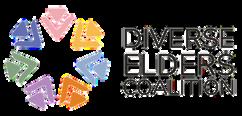
The Idaho Commission on Aging (ICOA) was created in 1968 and receives funding from both the federal and state governments The ICOA assists elders and people with disabilities to remain independent, avoid institutionalization and age in place in their own homes and communities of choice.
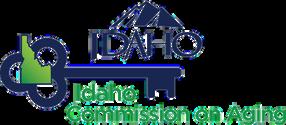


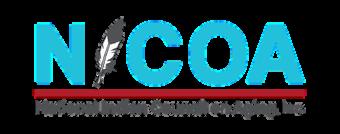
The International Association for Indigenous Aging (IA2) focuses on the issues of culturally appropriate resources for Indigenous elders with Alzheimer’s disease and brain health

The National Congress of American Indians (NCAI) is the oldest, largest and most represented American Indian and Alaska Native organization serving the broad interests of tribal governments and communities. NICOA works in partnership with NCAI to ensure that the voices and concerns of elders are represented and supported at the national level NICOA’s board chairperson serves as the chairperson of the NCAI Elder Committee
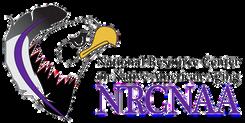

The National Consortium on Aging Resources for Senior’s Equity was established by the Administration for Community Living in 2012 and is composed of five national minority aging organization partners, each of whom represents a major racial and ethnic minority elder population: MHP Salud, the National Asian Pacific Center on Aging, the National Resource Center on LGBT Aging, the National Caucus and Center on Black Aging and NICOA. The consortium works as an interconnected resource center to decrease the prevalence of disparities among racial and ethnic minority and LGBTQ elders, their families and caregivers, by providing technical assistance to the Aging Network
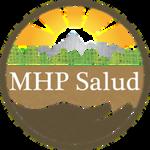
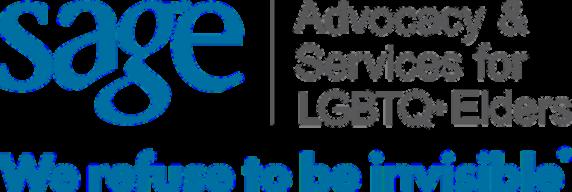
The National Resource Center on Native American Aging is committed to identifying Native elder health and social issues. Through education, training, and technical assistance, they assist in developing community-based solutions to improve the quality of life and delivery of related support services to the Native aging population.
USAging represents and supports the national network of Area Agencies on Aging and advocates for Services for Native Americans (Older Americans Act Title VI) that help elders and people with disabilities live with optimal health, well-being, independence and dignity in their homes and communities.



NICOA received a generous gift of $4 million from Philanthropist Mackenzie Scott last year. Scott, who has a net worth of more than $55 billion, also launched a charitable giving organization called Yield Giving.
The list of recipients includes many nonprofit organizations, though Scott said she’s particularly focused on supporting groups who are helping to uplift “those whose voices have been underrepresented.” This donation will help NICOA continue to advocate for improved comprehensive health, social services and economic wellbeing for Native elders

American Indians and Alaska Natives have the highest poverty rate of any group 29 2 percent as opposed to the United States as a whole at 15 9 percent, according to the U S Census Bureau Projected poverty rates for Native elders in 2030 are 10.9 percent more than twice the rest of the total population, which is projected to be 4.7 percent.
NICOA works to financially empower Native elders by raising awareness of elder abuse, financial exploitation, scams and fraud, as well as bringing Native elder concerns to the aging network and other interested stakeholders. The organization integrates culturally relevant training and technical assistance to highlight barriers to services that all Native elders face and strategies for overcoming those barriers To help improve health equity among Native elders, NICOA supports policies that establish health education, awareness and prevention programs for Native elders, fund on-going research of health disparities in aging, improve health care access and quality for elders, and promote inclusion of Native people in gerontology and geriatric research
“The gift is a recognition of the work NICOA does in addressing the health, social and economic disparities experienced by American Indian and Alaskan Native elders,” said NICOA Executive Director Larry Curley. “The gift will enable NICOA to dream even bigger in the development of creative, innovative and responsive programs that create change.”
NICOA worked with AMERIND to raise over $22,000 during their 17th Annual Protecting Tribal Families Golf Fundraiser at the Santa Ana Pueblo, New Mexico last year The tournament raised more than $40,000 for numerous families and invited beneficiaries in Indian Country
AMERIND creates affordable, sustainable insurance products and services for Indian Country, and is the nation’s only tribally owned insurance company. Their Protecting Tribal Families Fund assists American Indian families without homeowners’ insurance in rebuilding or repairing after a fire, flood, or other catastrophic event To learn more, visit their website at www amerind com
Fiscal Year July 1, 2021, through June 30, 2022
62.97% Salaries
11.90% Other (printing, outreach, insurances)
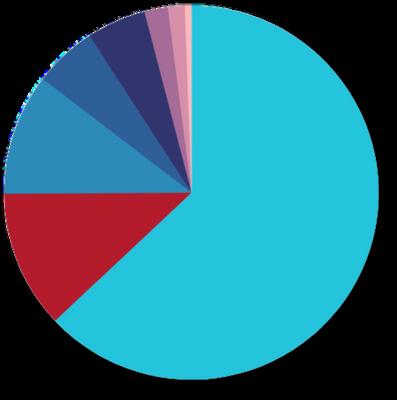
10.50% Advertising
5.44% Indirect Costs
5.10% Professional services
2.02% Office expenses/equipment
1.45% Travel
0.58% Conference costs
Fiscal Year July 1, 2021, through June 30, 2022
Grants, Donations & Other Revenue

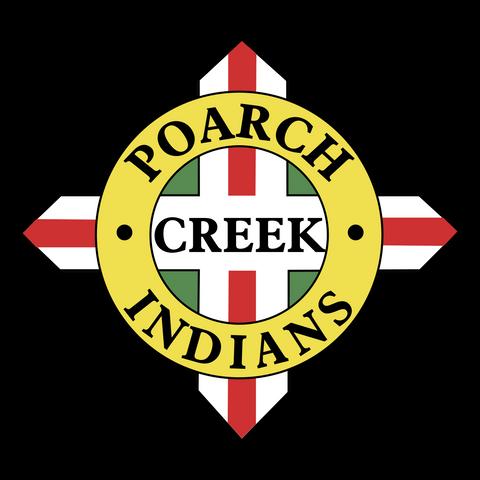
Federal grants
In-kind contribution (services)
Donations
Contracts revenue
Conference revenue
Foundation grants

Membership dues
Other revenue
Investment return, net
Total support and revenue
Expenses
Salaries
Other (printing, outreach, insurance)
Advertising
Indirect Costs
Professional services
Office expenses/equipment
Travel
Conference costs
Total
For a complete copy of the FY 2022 audited financial statement, visit www.nicoa.org
